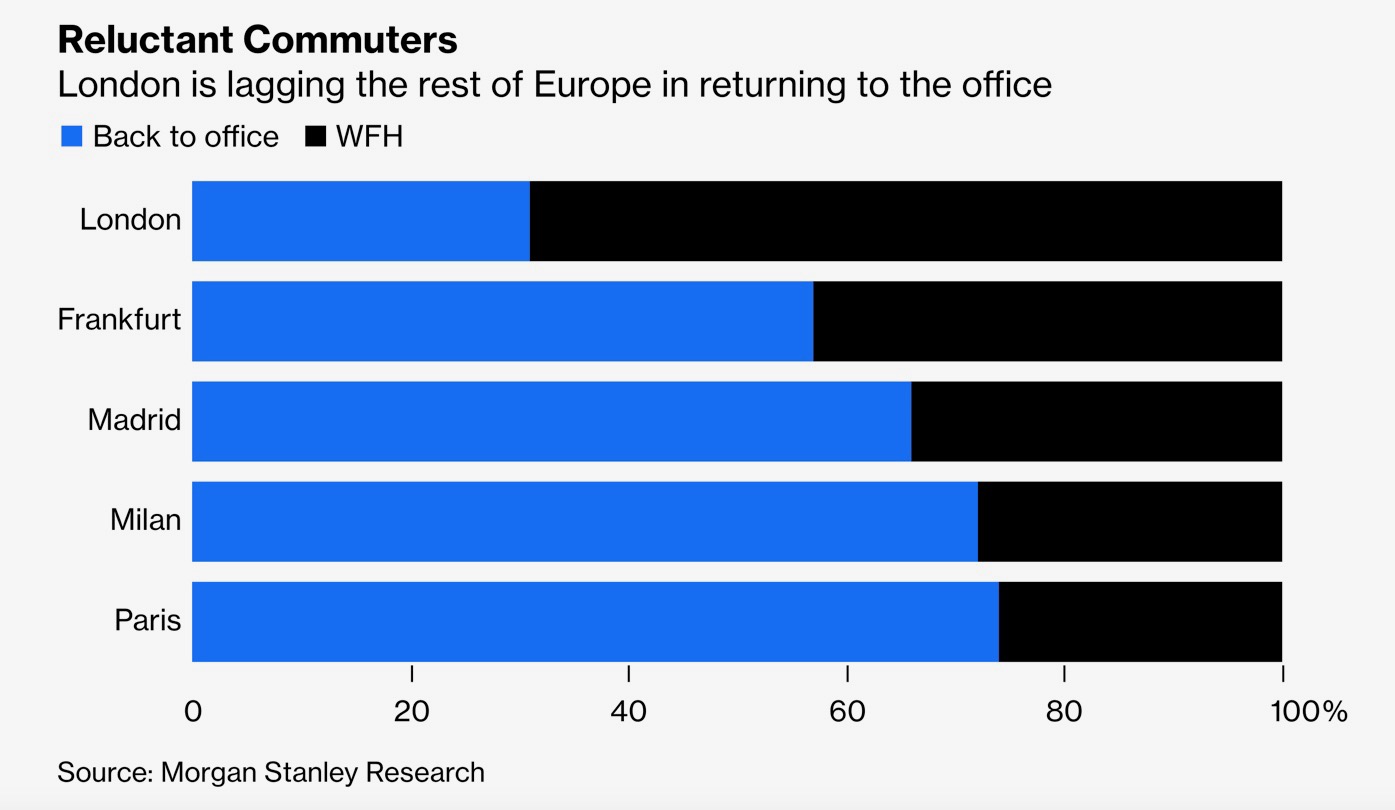Compared to their continental counterparts Brits have been slow to return to the workplace.
Or to be more exact, Londoners have. That’s according to research from Morgan Stanley quoted in a Bloomberg report by Chris Hughes:

While the industrious folk of Frankfurt, Madrid, Milan and Paris are — for the most part — back in the office, Londoners (and those who’d normally commute into London) are not. Indeed, only a third have returned.
Are the rest skiving-off then? Well, working from home is not skiving — and the kitchen table has many advantages over the workstation. However, that’s as true in France or Germany as it is in Britain so why the difference between us and the rest?
Hughes suggests that “fearful of losing their jobs, homeworkers have reinvested commuting time in work.” British labour markets are more flexible than in a lot of European countries — so the fear over here may be sharper. Furthermore, far from resenting their stay-put workers, British employers might have noticed an uptick in productivity. If so, why not keep things that way? It’s better than having staff waste time in pricey office space.
Then there’s London’s office architecture. Hughes makes the point that lift-dependent towers are not conducive to social distancing. Accommodating London’s growth in high-rise developments may prove to be a long-term economic disaster — as well as an aesthetic one.
It wouldn’t surprise me if the raw deal meted out to London commuters was another key impediment. It’s not just that using public transport is expensive, the ticketing system is also colossally unfair. While season tickets give full-time commuters some financial relief, part-time commuters are properly screwed-over by train companies that clearly don’t care.
Except that this lazy disregard may now cost them dear. Not all workplaces are set-up to have everyone back all at the same time. Using rotas to restrict staff numbers on any particular day is one way to achieve social distancing. In other cases, it won’t be as formal as that — instead, workers will commute in as and when judged necessary.
If the train companies don’t want to go bankrupt, then their ticketing offers should be as enticing as possible to uncertain returnees. That implies a European-style ‘carnet’ system that offers flexible discounts. If, on the other hand, the only offer is ‘commit upfront to the same old, full-time season ticket… or pay through the nose’ then lapsed commuters will continue to work from home for as long as they can.










Join the discussion
Join like minded readers that support our journalism by becoming a paid subscriber
To join the discussion in the comments, become a paid subscriber.
Join like minded readers that support our journalism, read unlimited articles and enjoy other subscriber-only benefits.
Subscribe